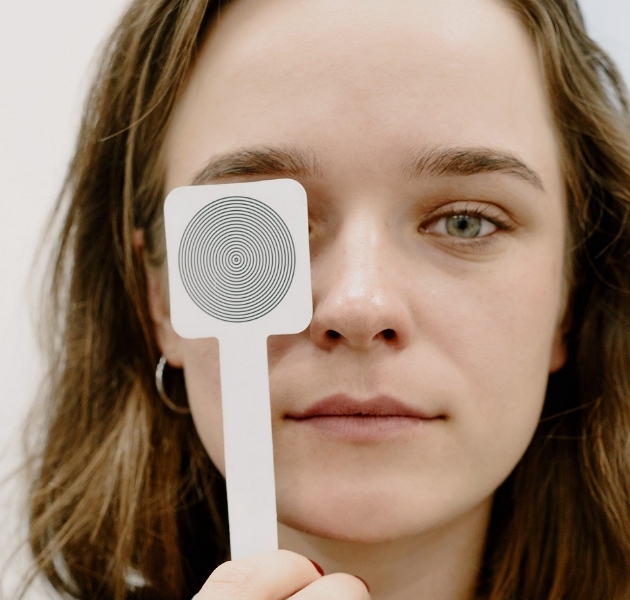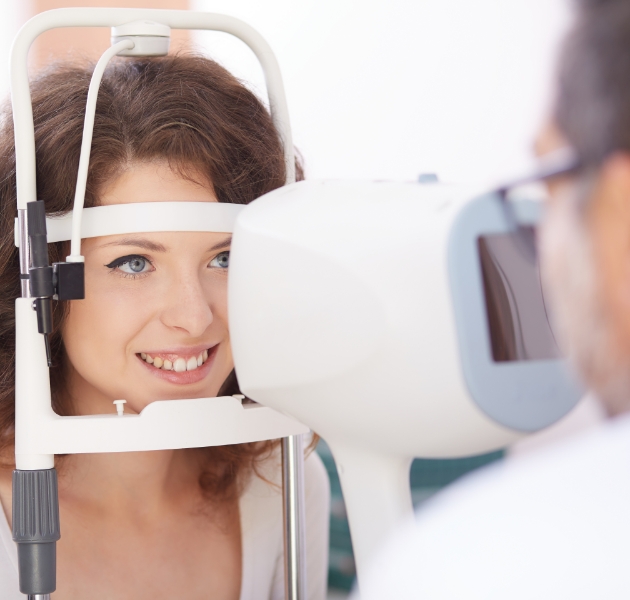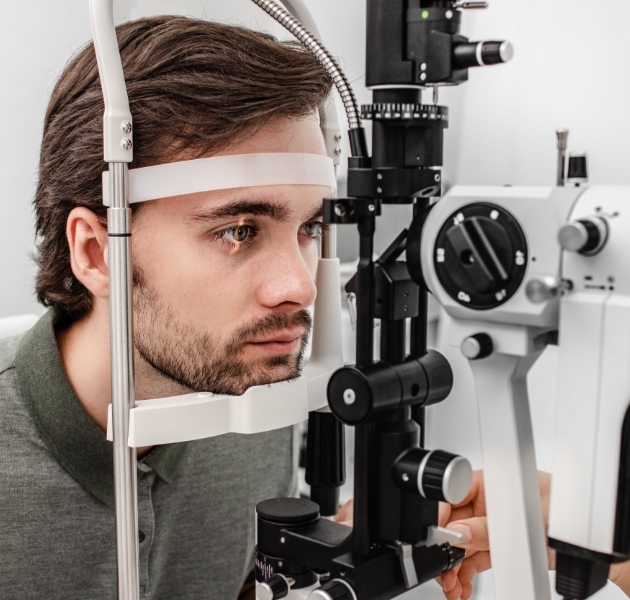Neurological Optometry Care
Neurological disorders and brain injury can cause a disruption between the eyes and the brain resulting in vision problems.
Book a Consultation

Who can benefit from a neurological optometric assessment?
Visual issues due to neurological disorders and brain injury can impact a person’s quality of life from double vision and blurriness to mobility and balance issues. Symptoms may be dramatic and immediate, or subtle and noticed over time.
Neuro-optometric care plays an important role in rehabilitation after injury and in the management of ongoing medical conditions.
We provide neurological optometric assessments for those who have experienced a brain injury, stroke, concussion, chronic migraine, vestibular disorders, eye injury, or have other neurological conditions such as Multiple Sclerosis and Parkinson’s Disease.
Our Leeming location has a dedicated neuro-optometry consultating room specially designed for wheelchair users.
What are the common vision issues?
What are the common vision issues?
Reduced awareness of objects in peripheral vision, bumping into things or difficulty judging depth perception
Blurry vision, double vision or difficulty focusing
Headaches, especially when using eyes
Difficulty with eye movements when reading or tracking moving objects
Decreased attention span or reduced concentration
Light sensitivity, Sensitivity to light or glare, including computer screens, sunlight or artificial light
Sensitivity to motion, including scrolling on devices or in busy environments such as supermarkets
How can we help you?
In collaboration with other health professionals such as physiotherapists and occupational therapists, our neuro-optometric care aims to help rehabilitate and enhance day-to-day living by improving visual symptoms or difficulties. Treatment may involve a combination of methods including specialised glasses or visual aids, precision tinted lenses and other visual rehabilitation strategies.


How often should I have my eyes examined?
We generally recommend an eye test every 12 months for adults and often more frequently for children, to ensure that eye function and health has not changed. If there is a condition we are monitoring, we may recommend more frequent eye checks.
Book a Consultation
More optometry services
-
Eye Examinations
Our comprehensive eye assessments not only test what you can see but also examine your eye health and how your visual system is working as a whole.
Learn More -
Children’s Vision Care
Applying holistic pediatric and developmental optometry principles, we assess your child’s eyesight, visual development and visual skills.
Learn More -
Dry Eye Clinic
Using advanced diagnostic equipment, our optometrists can identify the source of your dry eye symptoms and create a tailored treatment plan.
Learn More -
Myopia Management
We offer several treatment methods supported by clinical research to help control the progression of myopia in children and teenagers.
Learn More -
Orthokeratology
Orthokeratologyis a treatment that uses custom made rigid contact lenses to gently reshape the front surface of your eye, resulting in clear vision during the day.
Learn More -
Contact Lenses
With a range of trusted contact lens brands to choose from, our optometrists can help you find the best contact lens option for your prescription and lifestyle.
Learn More



Ready to Book an Appointment?
Our experienced and friendly team are ready to help you and answer any questions you might have.
Book a Consultation

